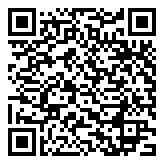Local Time
- Timezone: Europe/Riga
- Date: 22 Aug 2022
- Time: 7:00 am - 9:00 am

Collecting data on debris diverted from the Great Barrier Reef
Secure your ticket here!
Join our ReefClean Data team to learn about how to collect and enter data from marine debris diverted from the Great Barrier Reef into the Australian Marine Debris Initiative (AMDI) Database.
AMDI Database Manager, Jodi Jones will walk you through the importance of collecting data on marine debris and how to enter data from clean-ups and monitoring activities.
What is ReefClean?
ReefClean is a project funded by the Australian Government’s Reef Trust. Launched in early 2019, the project aims to remove and prevent marine debris along the Great Barrier Reef region through to 2023. In order to do this, Tangaroa Blue Foundation has partnered with several organisations to achieve success: Reef Check Australia, Capricornia Catchments, Eco Barge Clean Seas, South Cape York Catchments, and AUSMAP.
The ReefClean project delivers the following services:
Community clean-up events
Site monitoring
The Great Barrier Reef Clean-up event annually in October
Community Source Reduction Plan Workshops
School and community engagement activities
Data analysis
Disaster management clean-ups
Secure your ticket here!
Who is Tangaroa Blue Foundation?
Tangaroa Blue Foundation is an Australian registered charity focused on the health of our marine environment and coordinates the Australian Marine Debris Initiative, an on-ground network of volunteers, communities, organisations and agencies around the country monitoring the impacts of marine debris along their stretch of coastline.
Since the program started in 2004, more than 21 million pieces of marine debris have been removed from the Australian coastline and data on this debris collated and inputted into the Australian Marine Debris Database.
The database is used to firstly identify what is impacting different sections of the coast, and then to track wherever possible where those items are coming from. Lastly, stakeholders are then brought together to work on practical solutions and create source reduction plans to stop marine debris from entering our oceans in the first place. The database has open access to all contributors who are also recognised when data is used and has been used by the CSIRO, James Cook University, all levels of government and communities.
While an estimated 40,000 pieces of plastic float in every square kilometre of ocean, it is only when it washes ashore that most people get an idea of how much rubbish must actually be out in our oceans and the impacts that this has on marine life and seabirds. This is also our best opportunity to remove it from the environment before the next tide washes it back out to sea again.
Volunteers, organisations and communities from around the country are invited to join forces in the Australian Marine Debris Initiative to find practical solutions in reducing ocean pollution.
Who is Jodi Jones, AMDI Database Manager?
Jodi has worked with Tangaroa Blue Foundation for 4 years and has been pivotal in shaping the AMDI Database into what it is today. Outside of her passion for data, she provides training support to Gladstone and District Wildlife Carers Association, is a member of the Local Marine Advisory Committee and is a Chair Person for the Friends of Boyne Island Environmental Education Centre.
Secure your ticket here!





